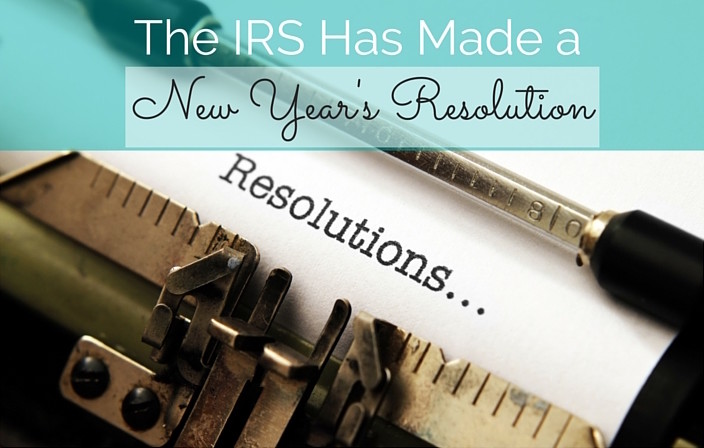The IRS has made some important updates to US tax code for 2016.
Have you ever thought about how a New Year’s resolution isn’t just for the person who makes it?
Think about it. A change in one person’s life affects everyone close to them.
If your spouse decides they want to go back to school, they need you to help them create a schedule around classes, homework and study time (not to mention setting aside funds for textbooks).
If your best friend resolves to lose a few pounds, she needs your help to not plan every get-together around lunch at your favorite barbecue place.
And if you decide that this is the year you’re going to run a marathon, you’re going to need your entire network of friends and family to keep you accountable to a training schedule.
The same rule applies for the U.S. tax code, which has made some significant adjustments for 2016.
(And you thought New Year’s resolutions were just for civilians!)
To help you plan around how the 2016 tax code updates will affect your business, we’ve provided a summary of the upcoming changes. (You’re welcome!)
Summary of 2016 Tax Code Updates
- Tax bracket limits increase slightly with inflation adjustments but only about .5%
- The standard deductions remain the same other than HOH (Head of Household) which increases by $50
- Exemption amount increases by $50 per dependent (to $4,000 each)
- IRA contribution limit remains at $5,500
- Gift tax limit remains at $14,000 each recipient
- SEP retirement contribution limit remains at $53,000
- Penalties for no health insurance increases to $2,085 or 2.5% of income for those married or have a family
- High income taxpayers (if you file as single, earning $200,000+) may be hit with an additional tax (deducted as payroll tax) for the purpose of funding low income taxpayers that are receiving rebates for health insurance
- When it comes to health insurance in the United States, you are going to pay either way….
- Either you pay for health insurance and have no extra fee to pay on your taxes and you get a deduction
- Or you have zero health insurance and you have to pay the government at the end of the year, but you aren’t prepared for health emergencies and you get no additional deduction.
- But remember: the cost of health insurance is 100% deductible from your federal income as a self-employed business owner.
The Bottom Line
If you want to stay ahead in 2016, know your income and your taxable amount.
Find it out ahead of the year-end, if possible. Because the sooner you know, the more ways you can minimize your taxes. For example, you can purchase things your business needs prior to year end to get a tax deduction. You can also set aside funds now to contribute to retirement and to pay your 2016 tax bill. At the very least, you can schedule a consultation with your accountant to understand how these changes may impact your business, so you can create a plan around it.
And don’t worry. We will gladly serve as your supporters and accountability partners as you push forward in your 2016 goals. That’s what we’re here for!

